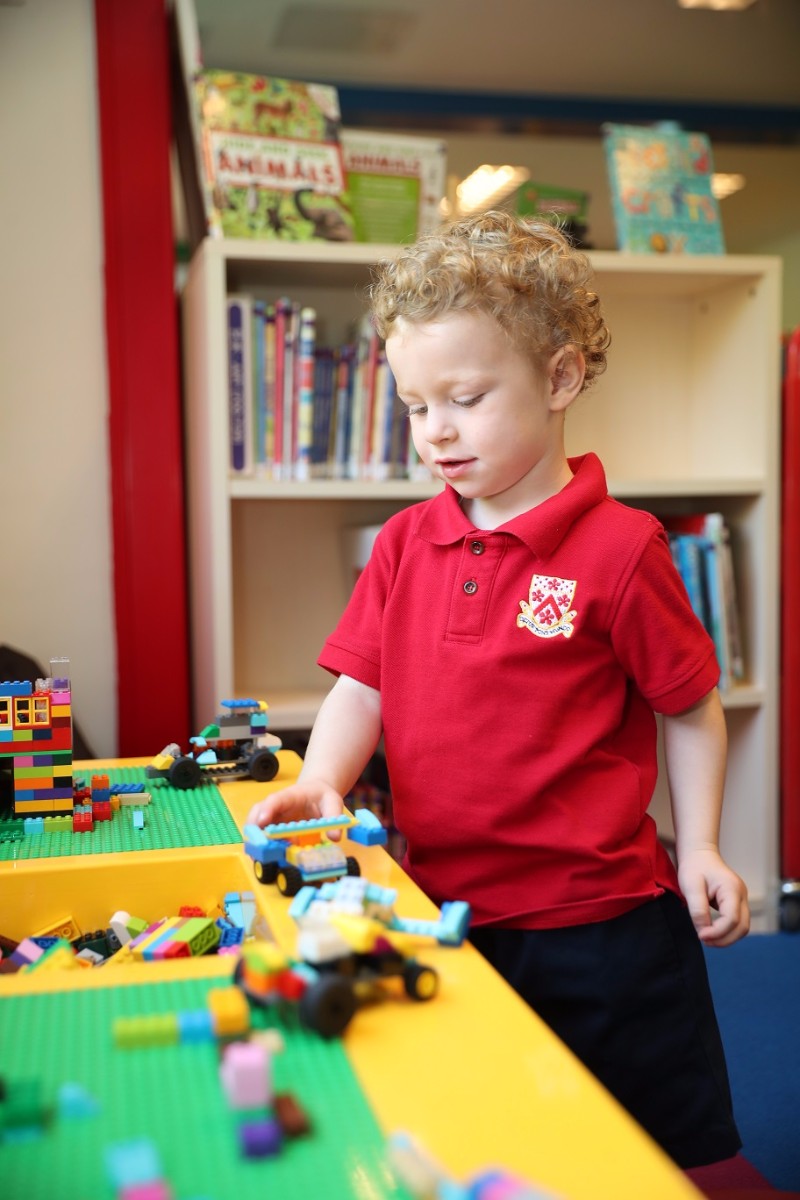As the summer holiday comes to an end, we begin to plan for the coming school year, getting our children's uniforms and bags ready and preparing them for a new academic schedule.
With this in mind, we asked Shanghai teachers to give their thoughts on how they embrace a new school year: from how to help children transition from lazy summer days to structured school schedules to the moment they know it's going to be a great year with their students.
So, as a new school year begins, let's see what the teachers of Shanghai have to say about embracing the year ahead. Starting with Victoria Foster, who is currently the Head of Junior School at Dulwich College Shanghai Pudong.
 Change may be good, but it's not always easy. As the new school year starts, switching from the laid-back holiday routine to the weekly school schedule can be tough for many families. However, with a little preparation and the right attitude, it can be a smooth transition for both parents and children.
Change may be good, but it's not always easy. As the new school year starts, switching from the laid-back holiday routine to the weekly school schedule can be tough for many families. However, with a little preparation and the right attitude, it can be a smooth transition for both parents and children.
The start of the school year is all about new possibilities. Children are generally excited to have new clothes and supplies, and they are looking forward to having different experiences. However, this can cause some children to become a little anxious. Different ages have different worries about starting school again. Young children sometimes worry about being separated from their parents and tend to focus on practical issues such as findingtheir classroom or what to do if they feel unwell. Older children, however, focus more on the social aspects of school such as making friends or worrying about the academic demands for the year ahead.
There are several actions that schools and parents can undertake to help children through the Back-to-School period.
Attend any induction programs
organized by the school This helps children familiarize themselves with the school environment. Parents should take time to walk around the school and make sure their child knows where the key places are.
Provide an opportunity for parents and students to meet new teachers before the start of the school year
A common question that children ask is, “Will my new teacher like me?” Making sure a child meets new teachers before the first day can help them begin to build positive relationships and reduces first-day nerves.
Be prepared
Laying out clothes and organizing materials the night before school starts helps avoid first-day mayhem.
Connect with school friends
Giving children time to meet up with other children at their school a few days beforehand helps to re-establish routines and gives children time to share their excitement as well as any worries with peers.
Look at the year ahead
Take time to review the school calendar with your child and get them excited about key events that will happen during the year. Discuss with them what they want to achieve and set new goals.
Back-to-school traditions
Establishing a yearly special occasion or treat just before school begins can add to the excitement of the new school year.
Once the daily school routines have been established and the initial worries and concerns have gone, motivating students to go to school is all about engaging them in learning and school life. There are some simple ways that parents can do this.

Image via Dulwich College Shanghai Pudong
Show an interest
Ask your child what they have learned today. However, try not to quiz them as soon as they get home. Some children need time to relax before opening up about how their day went.
Be an active listener
Be patient and listen to your child's stories about what happened at school. Don't rush them, and be positive if they are describing something that has upset them.
Know the names of their friends
Try to keep track of their friendship group no matter how often it changes! Be careful when sharing your personal opinions about their friends, as this could lead to conflict with your child if you disapprove of their current ‘best friend.’
Get involved
Getting involved in school life yourself is an excellent way to motivate your child to engage in learning. They will see you care about their school and want to put time and energy into school-related events.
Encourage your child to get involved in extra-curricular activities
Learning doesn't only happen in the classroom. Many schools offer other meaningful experiences outside the regular school curriculum. Encourage your child to join a school sports team, performing arts group or club. Allowing them to pursue their interests is an excellent way to keep them motivated.
Sometimes a child may say, “I don't want to go to school,” and there are many reasons why this might happen. Many parents automatically worry that this is due to a serious reason such as bullying; however, there is often a simple cause that can easily be solved by reflecting on their daily routine or by having a quick chat to their teacher. Here are four tips to use if your child doesn't want to go to school.
Review their schedule
Remember that going to school is tiring for a child. They have to concentrate all day, follow the rules, cope with sharing and working with others. These actions take a lot of energy and self-control. Review their sleep patterns, diet and amount of ‘downtime’ and see if some adjustment might help.

Image via Dulwich College Shanghai Pudong
Talk to your child
It's important to probe gently about why, and not accept ‘everything’ as an answer. Try to avoid lecturing and keep an open mind.
Set up a meeting
Engage your child’s teacher. If your child shares information about things that are upsetting them at school, you will need to work with the school to resolve the problem. Try and stay calm and look for practical ways to address the issue.
Enlist help
Reach out to other parents. If your child becomes upset at school drop off, look for an alternative way to get them to school. Young children can have a difficult time separating from their parents at the start of the school day but are perfectly happy afterward.

Image via Dulwich College Shanghai Pudong
[Cover image via Dulwich College Shanghai Pudong; Profile image via Victoria Foster]
Victoria Foster has been an educator for 20 years. For the past 17 years, she has worked in international schools all over the world. She has been a Head Teacher in several schools in Asia and South America and has had the opportunity to work with teachers and families from many different countries. She is currently the Head of Junior School at Dulwich College Shanghai Pudong.

















